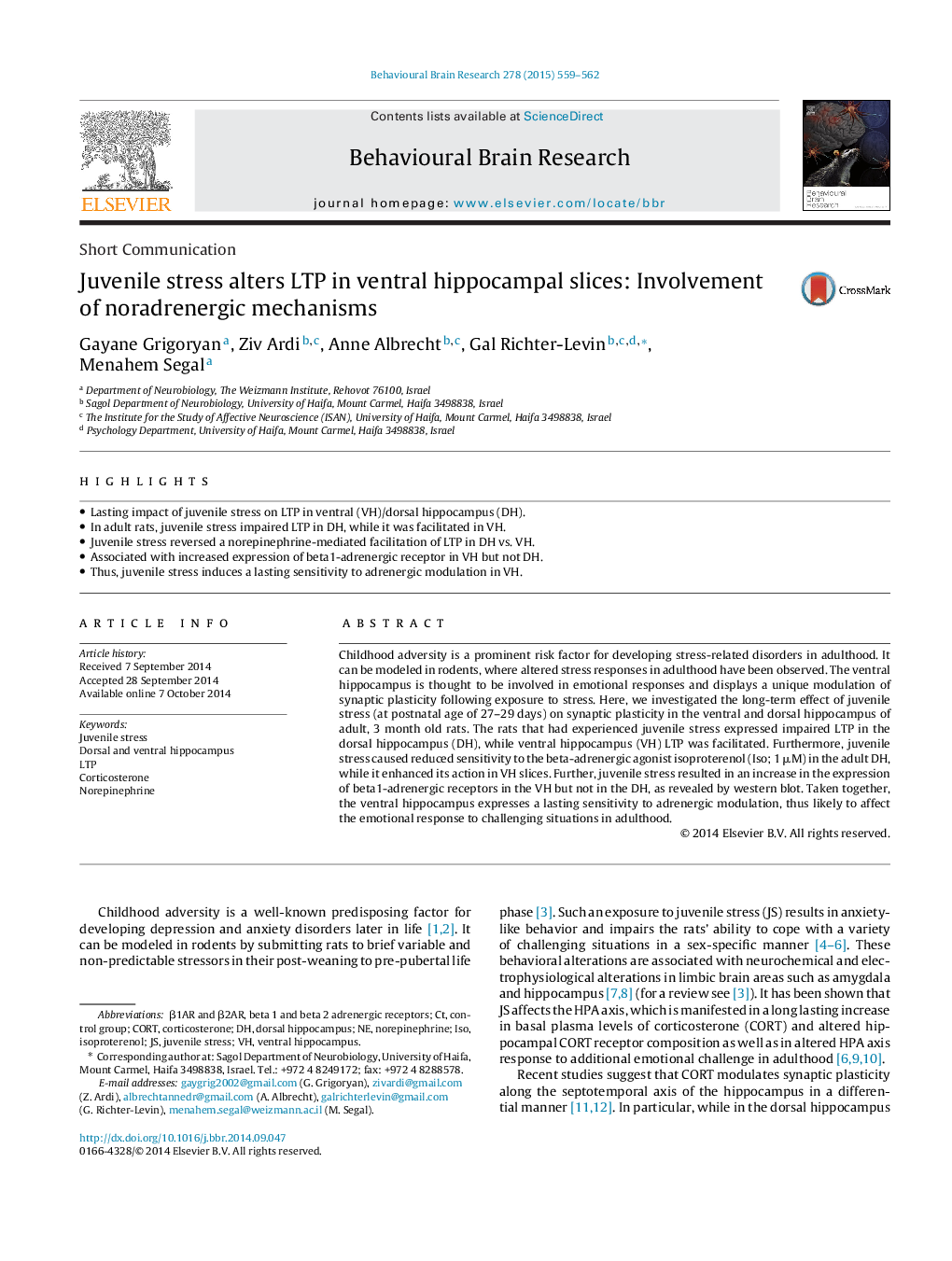| Article ID | Journal | Published Year | Pages | File Type |
|---|---|---|---|---|
| 6257699 | Behavioural Brain Research | 2015 | 4 Pages |
â¢Lasting impact of juvenile stress on LTP in ventral (VH)/dorsal hippocampus (DH).â¢In adult rats, juvenile stress impaired LTP in DH, while it was facilitated in VH.â¢Juvenile stress reversed a norepinephrine-mediated facilitation of LTP in DH vs. VH.â¢Associated with increased expression of beta1-adrenergic receptor in VH but not DH.â¢Thus, juvenile stress induces a lasting sensitivity to adrenergic modulation in VH.
Childhood adversity is a prominent risk factor for developing stress-related disorders in adulthood. It can be modeled in rodents, where altered stress responses in adulthood have been observed. The ventral hippocampus is thought to be involved in emotional responses and displays a unique modulation of synaptic plasticity following exposure to stress. Here, we investigated the long-term effect of juvenile stress (at postnatal age of 27-29 days) on synaptic plasticity in the ventral and dorsal hippocampus of adult, 3 month old rats. The rats that had experienced juvenile stress expressed impaired LTP in the dorsal hippocampus (DH), while ventral hippocampus (VH) LTP was facilitated. Furthermore, juvenile stress caused reduced sensitivity to the beta-adrenergic agonist isoproterenol (Iso; 1 μM) in the adult DH, while it enhanced its action in VH slices. Further, juvenile stress resulted in an increase in the expression of beta1-adrenergic receptors in the VH but not in the DH, as revealed by western blot. Taken together, the ventral hippocampus expresses a lasting sensitivity to adrenergic modulation, thus likely to affect the emotional response to challenging situations in adulthood.
